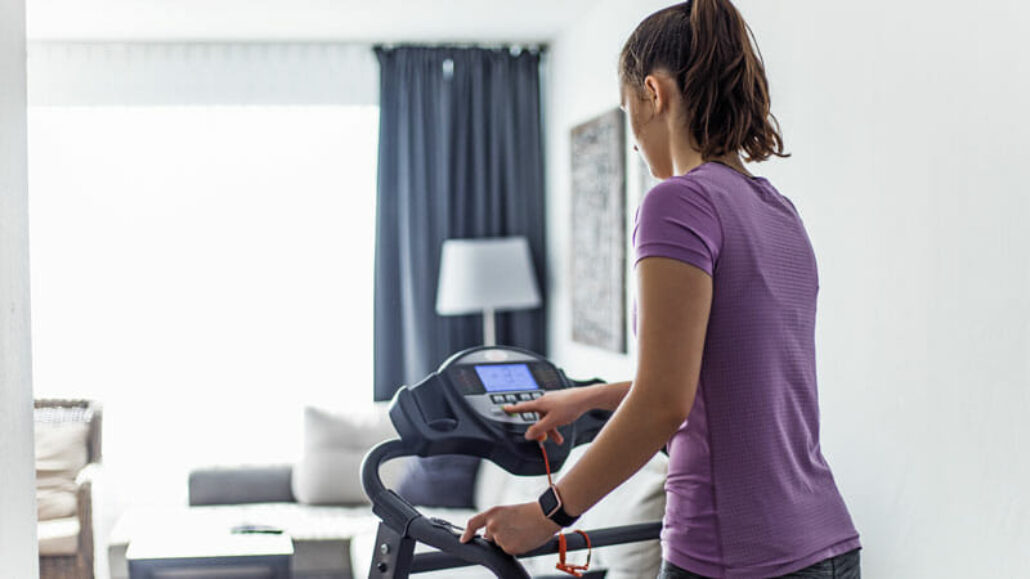Summit Orthopedics sports medicine expert Sarah Lehnert, M.D., C.A.Q., shares ways to keep your workout on track when you’re feeling sick.
You’ve got a great exercise regimen going. Perhaps you’re training for a race, or maybe you just want to stay in shape. Then, you get sick. Is it safe to exercise when you’re sick? What’s a smart athlete or fitness enthusiast to do?
“Studies show that low or moderate aerobic activity can really boost your immune system — we’d love everyone to get 30 to 45 mins a day of that,” said Dr. Lehnert. That means that regular exercise — whether walking, biking, running, swimming, or something else — can make you less likely to develop upper respiratory infections like the common cold. If you exercise when you’re healthy, you’re more likely to stay that way through cold and flu seasons.
The opposite is true for intense exercisers, like those training for a marathon or Ironman competition. The stress that intense exercise puts on your body is correlated with a poor immune response, which means that people who exercise at a high intensity may get sick more often.
When you get sick, remember the “rule of the neck”
When you’re sick, and wondering if it’s safe to exercise, keep the “rule of the neck” in mind. “With any infection above the neck, which would include symptoms like sinus pain, runny nose, and sneezing, it is typically okay to keep exercising,” Dr. Lehnert said. Exercise can loosen up the sinus congestion that can come with a cold, reducing symptoms.
Infections with symptoms below the neck, however, are a different story. “If you have a cough, a fever, body aches, joint pain — anything that is systemic or is located in the lungs — it’s not a great idea to exercise,” Dr. Lehnert said. Fighting off an infection stresses the body’s immune system, and exercise adds additional stress to your system.
Here are some of the additional negative effects of exercising with a “below the neck” infection:
- Exercise can raise your body’s fever response
- You can also worsen dehydration, which is already a risk if you have a fever
- A “below the neck” infection can impair muscle strength and endurance, so performance suffers
- It can also impair concentration and coordination, so the risk of injury is higher
- Viral illnesses can increase your risk of “rhabdo,” a rare complication that can break down muscle tissue
- Viral illness can also result in myocarditis, an inflammation of the heart muscle that can result in heart failure or, in severe cases, sudden death
What can I do to exercise safely when I’m sick?
To avoid these complications, the best idea is to lower your exercise intensity. If you typically run, then perhaps take a walk instead. And don’t be afraid to give your body a rest — simple things like rest and ample fluids can support your body as it fights off infection.
Finally, if you do decide to exercise when sick, don’t go to the gym, where you can infect everyone else. “Do exercises at home, and quarantine yourself until you’re feeling better,” Dr. Lehnert said.
Summit Orthopedics offers comprehensive sports medicine expertise
From Olympians to pro athletes to kids in youth sports and those that just want to be more active—Summit Orthopedics delivers expert care by fellowship-trained sports medicine physicians. If you are recently injured or concerned about ongoing pain, Summit Orthopedics sports medicine specialists have the expertise to evaluate your discomfort and develop a plan to quickly and safely help you get back to being active.
Start your journey to stronger, healthier athletic condition. Find your sports medicine expert, request an appointment online, or call us at (651) 968–5201 to schedule a sports medicine consultation.
Summit has convenient locations across the Minneapolis-St. Paul metro area, serving Minnesota and western Wisconsin. We have state-of-the-art centers for comprehensive orthopedic care in Eagan, MN, Plymouth, MN, Vadnais Heights, MN, and Woodbury, MN, as well as several additional community clinics.
More resources for you
- Find out how to evaluate your exercise program
- Is there such a thing as too much running?

